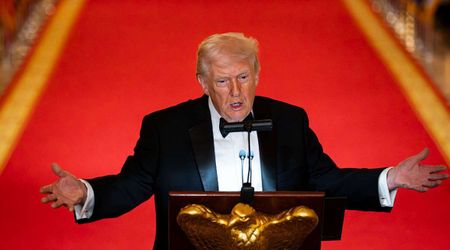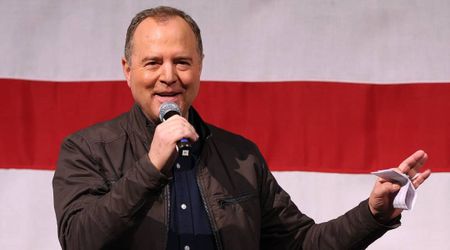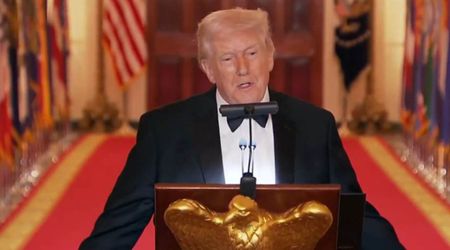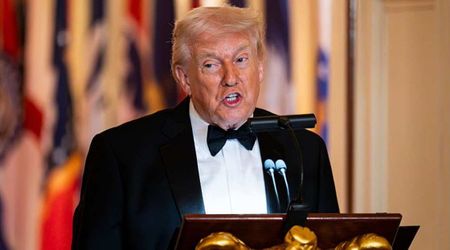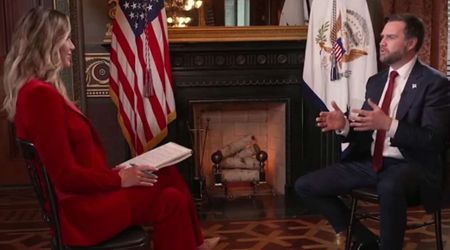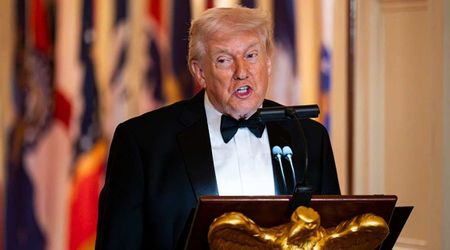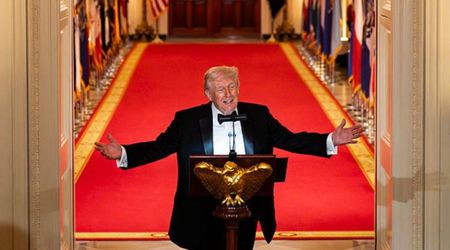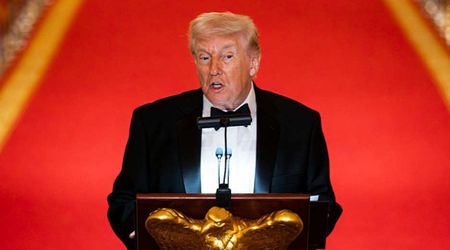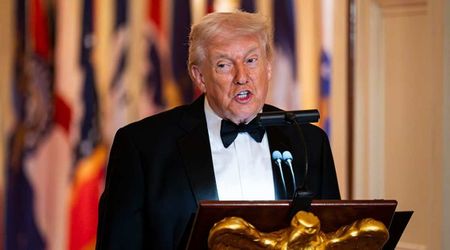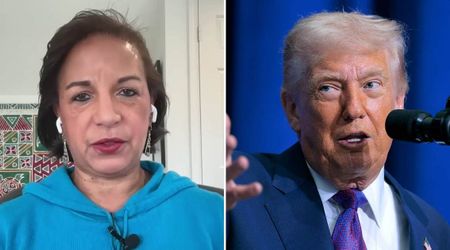How opening statements in Donald Trump's hush money trial could reflect what’s at stake for the former president
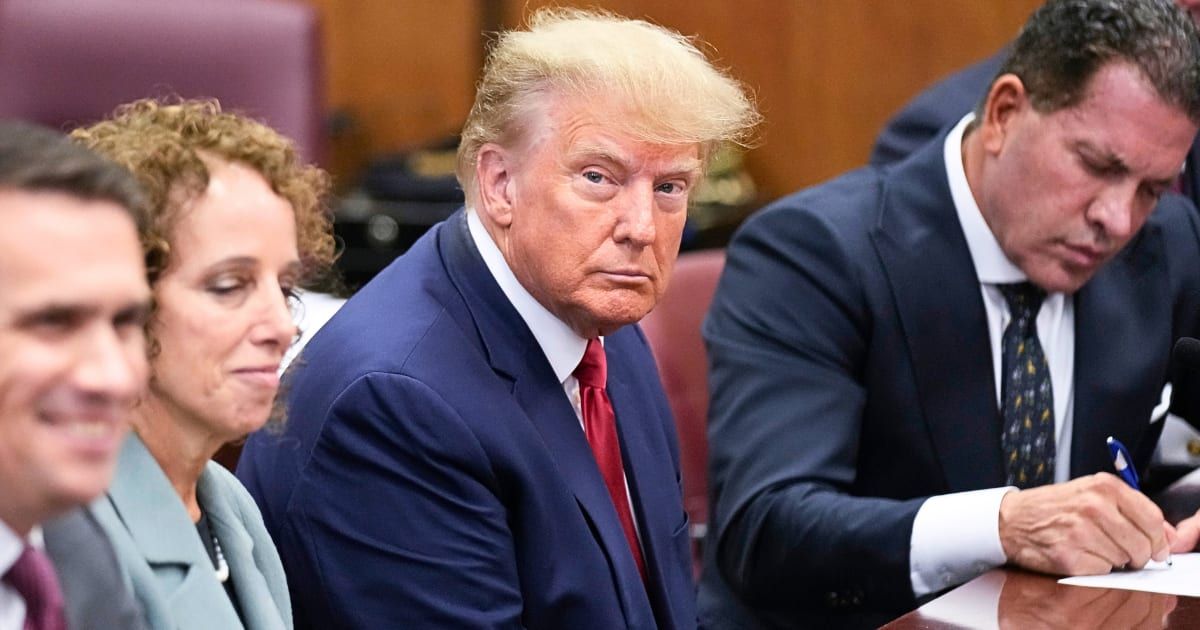
NEW YORK CITY, NEW YORK: Donald Trump, once the most influential figure globally and possibly poised to reclaim that status, is now facing the stark reality of being a defendant in a criminal trial. Opening statements for his inaugural criminal trial are set to commence on Monday, April 22.
Throughout his career in business and politics, Trump has often displayed a disdain for legal constraints and constitutional norms - even presenting himself as an untouchable figure. However, as the jury selection concludes for his trial concerning hush money payments in Manhattan, Trump finds himself stripped of this apparent aura of invincibility.
Now, his fate rests in the hands of prosecutors, his legal team, a judge, and a jury of his peers.

Only a short time away from a potential bid to reclaim the presidency, Trump finds his influence severely curtailed within the courtroom. Tactics like theatrics, evasion, and coercion, which have served him well in other arenas, hold little sway within the confines of legal proceedings.
Moreover, the obligation to attend court sessions for multiple days each week poses quite an inconvenience for the Republican candidate. This was exacerbated when a scheduled rally in North Carolina, a crucial swing state in upcoming elections, had to be canceled due to inclement weather.
Regardless of the trial's outcome, it serves as a poignant reminder of Trump's weakened position among presidential candidates. Whether he emerges from the trial as a convicted felon or not, voters will be confronted with lingering doubts about his character and the numerous legal battles he faces—three additional criminal cases await, all with pleas of not guilty.
While Trump has previously leveraged a narrative of victimhood effectively, particularly in GOP primaries, its resonance with the broader electorate remains uncertain, according to CNN's Stephen Collinson.
Donald Trump is not shy to testify
Trump's loss of control over unfolding events seems to be driving his determination to testify in the trial, despite the potential harm it may inflict on his case. He's strategically aiming to undermine the prosecution in the eyes of voters who will ultimately decide his fate in November's elections.
Expressing frustration outside the courtroom on Friday, Trump noted the unexpected start of the trial. “The trial starts on Monday, which is long before a lot of people thought. The judge wants this to go as fast as possible. That’s for his reasons, not for my reasons," he said.
In the past, Trump has relied on a barrage of legal maneuvers to prolong proceedings, a tactic that has effectively delayed the progress of his other pending criminal cases.
Following a tense procedural hearing where prosecutors and defense attorneys sparred over admissible evidence and past alleged transgressions that could surface during cross-examination if Trump takes the stand, the former president was confronted with unsettling revelations during what's known as a Sandoval hearing.

Criminal defense attorney Stacey Schneider remarked on the emotional toll of revisiting Trump's previous legal battles, such as his loss in a defamation case brought by E Jean Carroll and a significant verdict against him in a civil fraud trial.
“I think there is an emotional tilt to what the president was dealing with just a few minutes before he came out with that statement,” Schneider said Friday. “Defendants coming out of a Sandoval hearing are not pleased; it’s just the nature of the hearing. It’s the worst preview of what could come if you take the stand. It’s rattling. I think he was rattled.”
Over the weekend, Trump's preoccupation with his legal predicament persisted, evident in a flurry of irate posts on Truth Social, his preferred platform. He continued to assert his belief that, as a former president, he enjoys immunity from prosecution for actions taken while in office.
“Of course I was entitled, as President of the United States and Commander in Chief, to Immunity,” Trump posted on Saturday.
This argument is central to an upcoming Supreme Court case concerning his alleged interference in federal elections, which also bears relevance to the hush money scandal, as some of the implicated conduct occurred during his tenure in the Oval Office.
Connection to the 2016 election
The trial in Manhattan stems from a payment made during the 2016 election campaign to adult film actress Stormy Daniels, allegedly to conceal an affair and deceive voters. Trump refutes any involvement in an affair and has entered a plea of not guilty to charges of falsifying business records related to this payment.
Anticipated to be a personally challenging ordeal for Trump, the trial is set to feature testimony from former associates, potentially seen by the ex-president as acts of betrayal. Among these witnesses are Michael Cohen, Trump's former lawyer and confidant, and David Pecker, former chairman of American Media Inc., the publisher of the National Enquirer. Pecker is slated to be the initial witness called by the district attorney's office.
Prosecutors have opted not to disclose full witness lists to the defense in advance of each trial day, citing concerns that Trump's social media activity could endanger potential witnesses and prejudice the case.

In response to the defense's request for the name of the first witness by Sunday, prosecutor Joshua Steinglass cautioned against publicizing such information, warning that doing so would prompt a cessation of cooperation. “Should that be tweeted, it will be the last time,” he stated.
Judge Juan Merchan has declined to compel prosecutors to provide advance notice of witnesses, particularly given an impending contempt hearing on Tuesday concerning allegations of Trump violating a gag order through his social media posts.
The trial's political context
In the courtroom, Manhattan District Attorney Alvin Bragg's prosecutors have the straightforward task of proving Trump's guilt beyond a reasonable doubt, focusing solely on the legal and evidential aspects of the case. However, the impending election and the identity of the defendant cast a national spotlight on what seems to be a relatively straightforward matter regarding business records.
Implicitly, questions arise for Bragg regarding the strength and wisdom of pursuing a case that places Trump simultaneously on trial while seeking a return to office. The foundational principle of equality under the law is a pivotal consideration in this scenario.
Trump's unfounded claims suggest he's a target of a politically motivated legal offensive orchestrated by the White House to hinder his 2024 presidential aspirations. Despite lacking evidence of Biden's involvement in Bragg's case, some voters may perceive it as a partisan pursuit by a Democratic prosecutor against the presumptive GOP nominee.

For many voters, however, events from an election nearly a decade ago may feel distant, particularly since allegations of Trump's controversial behavior have been extensively publicized. Additionally, there's a prevailing sentiment that the charges in the Manhattan trial pale in comparison to the weightier accusations Trump faces in his other three criminal indictments, according to Collinson.
These cases, involving attempts to undermine the 2020 election and mishandling of classified information at Mar-a-Lago, carry significant implications for democracy and the integrity of the presidency.

